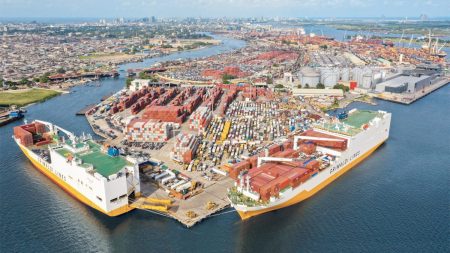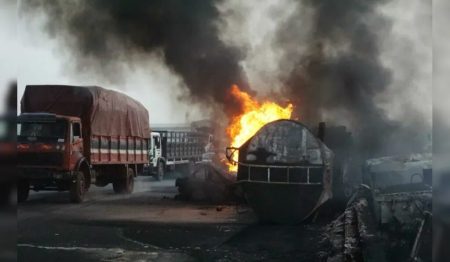 08 June 2015, Sweetcrude, Port Harcourt – Last year the Shell Petroleum Development Company (SPDC), Nigeria’s operating partner of the Joint Venture (JV) Agreement for the exploration and exploitation of crude oil deposits in Nigeria, gave notice that they would divest of their interests in its onshore and coastal oil blocks. The SPDC is an oil company whose shareholders invest in oil and gas business all over the world for profit so that it is a glaring contradiction that an oil company is relinquishing its interests in oil stakes it could have exploited for much more profit than it would make in a divestment process. About ten years ago, the SPDC scaled down its activities in Warri, Delta State office, declared several of its staff there redundant and redeployed those left in the system to Port Harcourt. Now, with the divestment of its onshore and coastal assets, the next phase of the SPDC’s strategy for maximising profit with minimal operations is to fold up its Eastern operations by closing down its Port Harcourt office, Kidney Island, Port Harcourt Residential Area, etcetera, operations that inject more than a Billion Dollars annually in taxes, incomes, contracts, procurements, services, rents, transportation, entertainment, leisure and all the official and unofficial businesses that contribute to the economy of the Niger Delta. The company is content with deep sea operations that have little or no involvement with host communities.
08 June 2015, Sweetcrude, Port Harcourt – Last year the Shell Petroleum Development Company (SPDC), Nigeria’s operating partner of the Joint Venture (JV) Agreement for the exploration and exploitation of crude oil deposits in Nigeria, gave notice that they would divest of their interests in its onshore and coastal oil blocks. The SPDC is an oil company whose shareholders invest in oil and gas business all over the world for profit so that it is a glaring contradiction that an oil company is relinquishing its interests in oil stakes it could have exploited for much more profit than it would make in a divestment process. About ten years ago, the SPDC scaled down its activities in Warri, Delta State office, declared several of its staff there redundant and redeployed those left in the system to Port Harcourt. Now, with the divestment of its onshore and coastal assets, the next phase of the SPDC’s strategy for maximising profit with minimal operations is to fold up its Eastern operations by closing down its Port Harcourt office, Kidney Island, Port Harcourt Residential Area, etcetera, operations that inject more than a Billion Dollars annually in taxes, incomes, contracts, procurements, services, rents, transportation, entertainment, leisure and all the official and unofficial businesses that contribute to the economy of the Niger Delta. The company is content with deep sea operations that have little or no involvement with host communities.
The SPDC is the official operator of the JV Agreement but it does so in tandem with other IOCs. It is anybody’s guess what those other IOCs would decide to do with the stakes they have acquired in the Niger Delta. The SPDC is a business concern; the creation of jobs, business opportunities and an economic sector within a larger economy are all incidental to its primary goal of profit making. From 2004 profit making in the Niger Delta became a serious challenge for the IOCs with the commencement of activism by the states and peoples of the Niger Delta for the control of their mineral resources, the attendant militancy, kidnapping and wanton killings of oil workers, sea piracy, pipelines vandalism that created spillages and stoppages in production activities. All these activities create losses in business and the oil and gas business in Nigeria, funded predominantly by foreign capital stands on precarious ground. By 2008 the SPDC had generated a memo in which its oil and gas business in Nigeria was profiled as “high risk and low profit.” Without holding brief for the IOCs, they had to contend with official payments such as operational permits, company taxes, workers’ salaries and contractors’ invoices; the IOCs also had to deal with issues that Nigerian governments failed to manage, issues such as the provision of electricity, hospitals, educational centres, scholarship grants, water and other basic infrastructure in order to create, maintain and sustain an operational environment.
Misreading the ‘generosity’ of the IOCs, host communities extended their demands on the IOCs to the mundane, such as “marching ground,” community halls, family halls, compulsory annual community development payments, “compensation,” ex gratia payments to long lists of chiefs, community officials, youths and women groups. They also endured natives of the host communities who insisted on eating free meals at their private restaurants and enjoying free rides on company boats and helicopters. Whenever the IOCs resisted, they suffered production stoppages and were reminded that the oil they were excavating belonged to them, the natives. All these were before 2004; that year death, kidnapping, the maiming of oil workers and the destruction of operational vessels and equipment entered into a matrix that was already undermining the oil and gas business.
In 2007 Umaru Yar’Adua became president of Nigeria. One of the policies he immediately introduced and became popularly for in the Niger Delta was Amnesty for the militants who had been involved in the resource control struggle. The Amnesty programme as was packaged by the Yar’Adua government had three major features, to wit: the non-prosecution of criminal offences suspected to have been committed by the militants, the provision of scholarships for militants inclined towards academic pursuits and skills acquisition training for others. Unfortunately, the government also decided to pay monthly stipends to some of the leaders and foot soldiers who had partaken in the violent struggle, others who had been involved on principle having rejected the Amnesty on the ground that it fell short of their demand: the control of their resources. The inclusion of the payment of monthly stipends to militants as ‘monthly salaries’ has proved to be a monumental mistake on many fronts, including the exploitation of the facility by the leaders with ghost lists, profligate lifestyles that must be sustained at the end of the programme in December 2015, the negative effects of unearned income on the local economies and now, portends to ‘drive’ the imminent capital flight from the Niger Delta. Investors who foresee the return of kidnapping and murder of oil workers, the wanton destruction of oil platforms, production equipment and vessels as well as general insecurity to the Niger Delta are poised to redirect their financial resources to more conducive environments.
Apart from (and attracted by the implosion of) oil and gas business in the Niger Delta, Britain and the United States of America extended consular services to Port Harcourt which they withdrew in 2008 as a direct result of insecurity in the Region. Michelin and Virgin Atlantic have since shut down their operations in Port Harcourt. No economy can survive with government business alone. The people and governments of the Niger Delta have a huge task to convince investors they can convey their opposition to the divvying up in Abuja of the proceeds from resources that were extracted from their region in such a manner that does not discourage foreign direct investment; they must also let it be known that they are committed to a business culture that respects continuity.



